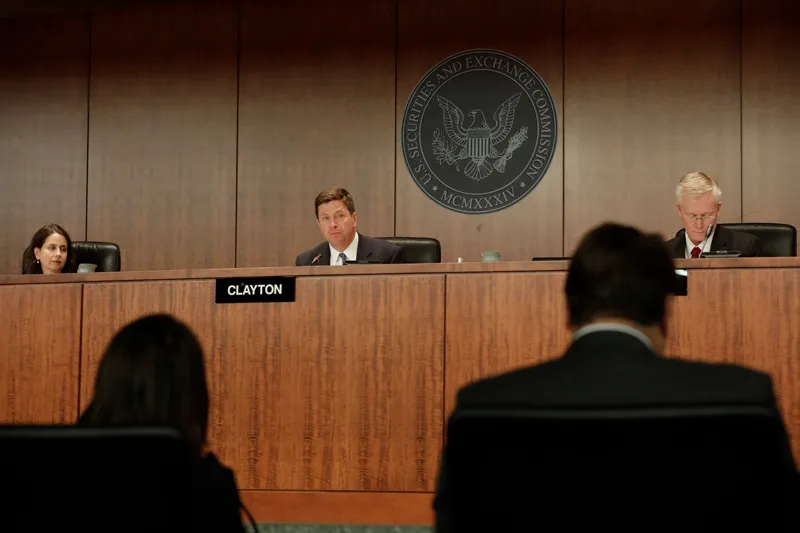The Securities and Exchange Commission has proposed a new rule requiring brokers to act in the best interest of their clients when providing financial advice, an effort it argues would protect investors and shine a light on fees.
The regulation would increase scrutiny of the cost, complexity, and risk of financial products sold by brokers, with the SEC aiming to prevent self-enrichment at the expense of clients. The proposal would increase disclosure requirements.
“Concerns regarding the potential harm to retail customers resulting from broker-dealer conflicts of interest, and in particular the conflicts associated with financial incentives, have existed for some time,” the SEC said in its proposal.
The regulator also is seeking to make clearer for investors whether they’re doing business with a broker or an investment adviser. Investment advisers have long been required by the SEC to put their clients’ interest ahead of their own and held to tough standards as fiduciaries.
Investors don’t always understand the difference, potentially leading them to choose “the wrong kind of investment professional” or to receive advice that is not in their best interest, the SEC said in an April 18 statement. The regulator has proposed restricting certain broker-dealers and their financial professionals from using “adviser” or “advisor” as part of their name or title when working with ordinary investors.
[II Deep Dive: Active Managers Hope to Win Back Investors With Index-Like Fees]
SEC chairman Jay Clayton said at an April 18 meeting that 43 million American households have a retirement or brokerage account, while nearly 1 million people work in the investment advisory and broker dealer industry.
The proposed rule does not establish a uniform fiduciary standard of conduct for investment advisers and broker-dealers. While brokers would have to take reasonable care that they’re acting in investors’ best interests, they would still be held to a less stringent standard than investment advisers, according to the proposal.
The SEC’s proposal, which is open to public comment for 90 days, would require brokers to disclose any material conflicts of interest and the nature of their relationship to investors.
The proposed regulation could eventually replace the Department of Labor’s fiduciary rule, which became law under the administration of President Barack Obama. The DOL rule requires brokers to act in the best interests of clients when providing recommendations about their retirement accounts.
In February 2017, President Donald Trump signed a Presidential Memorandum directing the DOL to examine the rule. The status of that rule is still in doubt, according to the SEC’s Clayton.







